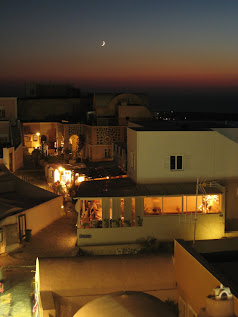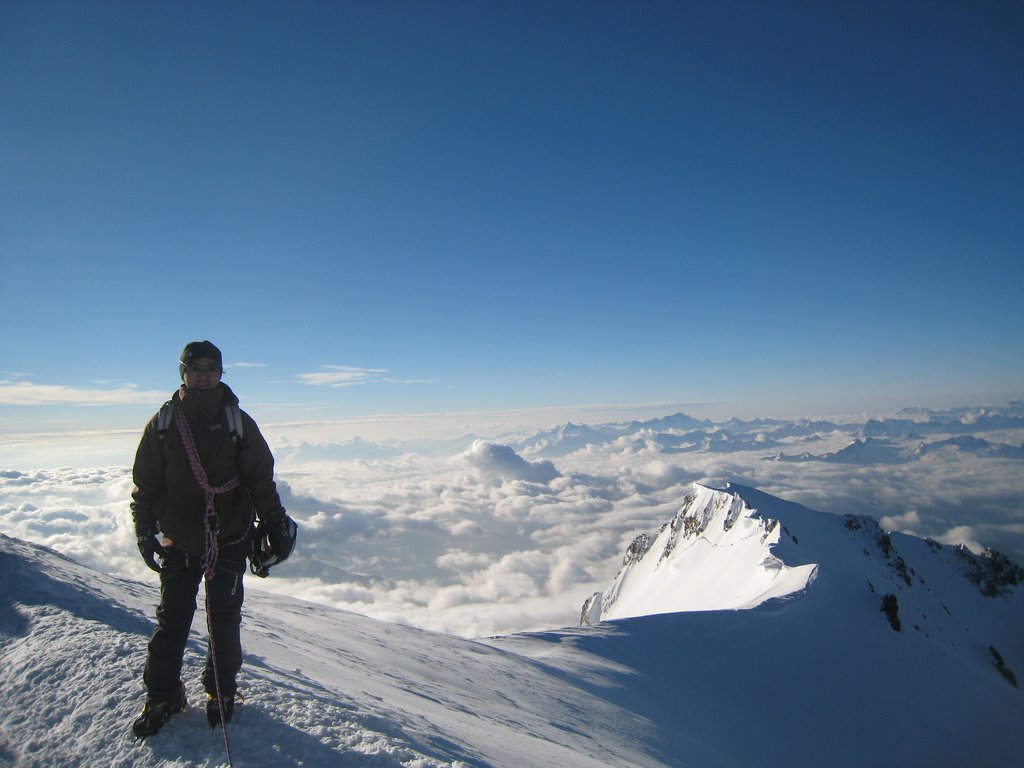Found in rockclimbing.com
"And how do you get the rope up there?"
Answer1: "It just kind of grew down from that tree."
Answer2: "I used a harpoon. It took several tries."
Answer3: "We've trained a couple of these squirrels to run the rope up and loop it down the anchor."
Answer4: "You don't." - usually said as the lead climber begins to climb -
"How does the last person get down?"
Answer: "Just like I did."
"Well, then, who carries the rope down?"
Answer: "No one, we leave it there for the next party of climbers." - this usually said as the last person down is pulling down the rope -
"Hey, are you training to be Tom Cruise's double?"
Answer: "No. He's training to be mine."
"Rock climbing is your hobby; but what do you do for exercise?"
"Is there a strip-club or something at the top of the cliff?"
Then the all-time classics:
"Do you know there's an easier way around the back?"
and the most important and most classical of all:
"Why?"
Exactly. Why? Why do we climb?
Why do we have to get to the top of the rock? Why do we climb another rock, another mountain ... once up there, the views are all the same?
----------
Orpierre is another world I never knew existed. A sleepy medieval village in Les Hautes-Alpes (the upper Alps) department popular with climbers but ignored by everybody else (except perhaps a few stray tourists looking for a quiet getaway from the touristy Provence or Côte d'Azur), it maintains the very traditional French character and mentality.

Friendly, laid-back, and trusting. No matter where you're from, what language you speak.
Just like in Fixkes's 'kvraagetaan. A world from the good-old-time that knows no gsm (unless you climb 500m to the top of the cliffs that is), no cinema, no police station, no restaurant, no hypermarket, not even a post office. Just a small bar, an épicerie, a bakery, and--of course--a climbing shop. Its main street--La Grand Rue--is only about 1.5m wide. A place where its villagers still live the life that knows no hate, no prejudice, no worries, no ambition, no regret ... a place where everything is still so simple, and a week vacation in a nice traditional gîte costs no more than €150, everything included.
Including one heck of an experience that--to me--beats any $5000 vacation in the Bahamas or any other "exotic" places.
----------
Why do we climb? Why do we have to get to the top of the rock? Why do we climb another rock, another mountain ... once up there, the views are all the same?
Why do we work, why do we chase dreams, why do we have to always be better than everybody else, better than yesterday? Why do we live?
We, climbers, climb because we love to climb.






